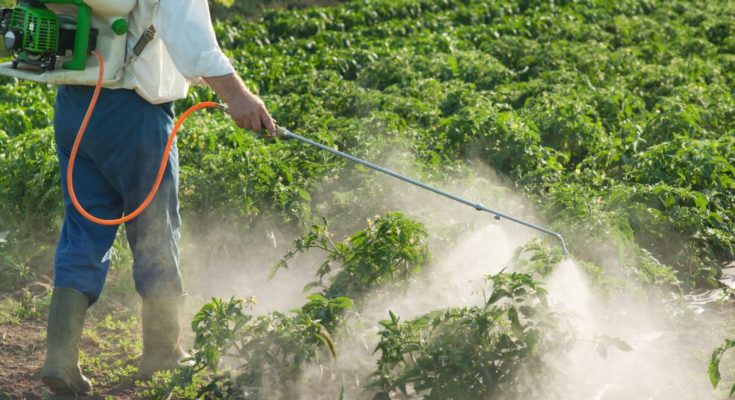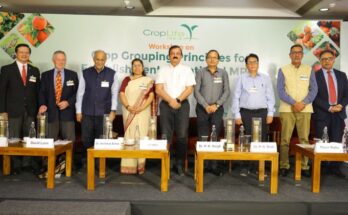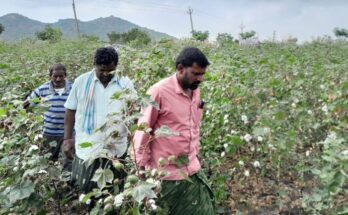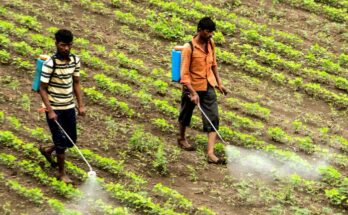P. Raghavendra Rao, Secretary, Department of Chemicals & Petrochemicals, Government of India today said that India faces a big challenge in meeting its food needs and thus requires a focused attention on various fronts. Speaking at the ‘8th Agrochemicals Conference 2019 – Role of Agrochemicals in Sustainable Farming’, organised by FICCI, jointly with the Department of Agriculture and Farmers Welfare along with Department of Chemicals & Petrochemicals, Government of India, Rao said that India had done well in agrochemicals, but a lot needed to be done.
“By 2022, India will become the most populous country in the world overtaking China. And, the rate at which urbanisation is taking place, the requirement of food to meet the needs of the country will be enormous. It’s a big challenge,” he said.
Rao further added that all stakeholders in the food business from farmers to industry and government would have to dwell on the challenges and make concerted efforts to address the issues like depleting water table, degradation of land and productivity.
He said that going by the current rate at which India is importing chemicals, from slightly above Rs 1,000 crore in 2004-05 to net import of Rs 140,000 crore in 2018-19, the country’s net import of chemicals may cross Rs 3 lakh crore by 2024-25, he noted.
“It’s very scary. Though India holds 6th position in the world’s chemical sector, its total contribution is 3 percent of the entire world market whereas China contributes more than 39 percent. We need to think of ways to reduce this import dependency,” he added.
Jai Shroff, Global CEO, UPL Limited highlighted that in order to achieve Prime Minister’s vision of India becoming a US$5 trillion economy, the chemical sector has to double itself.
“My driver earns more than a farmer who cultivates 5-10 acre of land. So, why a farmer would want his son to be a farmer? He would rather prefer his son to do small jobs in the cities. And therefore, agriculture needs to be made more profitable by various ways such as focussing on value chain, water stress management, decreasing cost of cultivation and many more,” he added. In days to come, food import will be a bigger problem than oil import, he warned.
Dr D. Kanungo, Former DDG, Ministry of Health and Chairman, FSSAI Committee on Residue Network, allaying fears of harmful chemicals entering the food chain, said that pesticides in the country are well regulated and not a single pesticide causes cancer. “Pesticides are judiciously used in India. Farmers are falsely accused of using high pesticides and fertilisers whereas it is among the lowest compared to some of the developed and developing countries. Besides, there is a large margin of safety,” he said.
Rajan Gajaria, Executive Vice President, Business Platforms, Corteva Agriscience called for a combined effort to dispel the mistrust on chemicals in food. He stressed on gaining consumers trust, convergence of different technologies and collaboration of all stakeholders namely government, regulators, NGOs, companies and consumers.
RG Agarwal, Chairman, FICCI Sub Committee on Crop Protection Chemicals and Group Chairman, Dhanuka Agritech Ltd said, food security, nutrition security and health security are the topmost priorities of any country, and that New India cannot be made ignoring the farmers and the agriculture sector.
FICCI-Mott Macdonald Knowledge Paper on Indian agrochemical industry titled ‘Role of Agrochemicals in Sustainable Farming’ released during the conference, highlights that sustainable farming implies quality output with adequate quantity of produce and livelihood for farmers. To achieve sustainable farming, there are some imperatives which all stakeholders need to focus on:
1.Import substitution
2.Warehouse based post-harvest system on credit
3.Innovation fund for agriculture sector and agritech
4.Leveraging PPP mode
5.Research for new business models
6.Focus on seed treatment
7.Rationalisation in GST rate
8.Strategy for farmer producer organisations
9.Post-harvest agrochemical regulations
10.Increased oilseeds production using agrochemicals
11.Management of invasive species
12.Post-harvest loss reduction using agrochemicals




